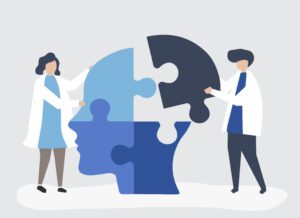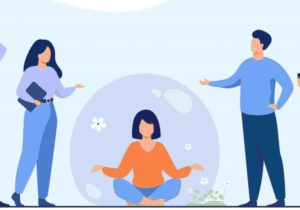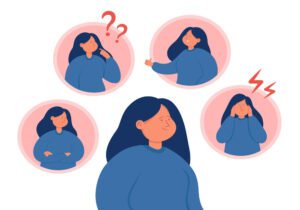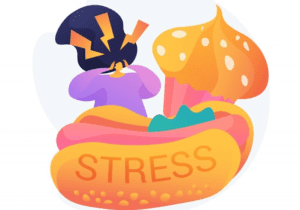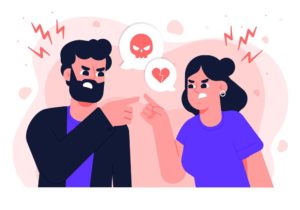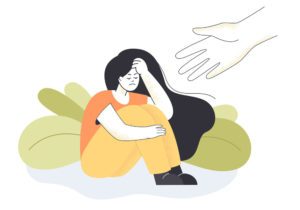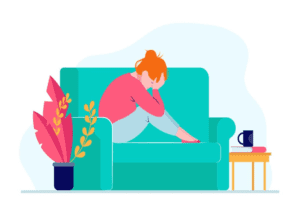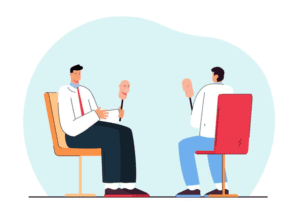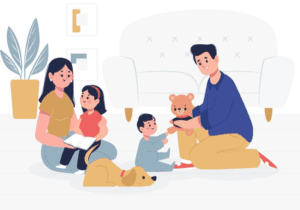Can Relationship Counseling Work for Toxic Relationships?
This article has been researched and written by Nardus Saayman. AI has not been used in producing this article.
Relationships can be complicated, emotional, and at times, painful. While every couple experiences ups and downs, some relationships fall into patterns of ongoing conflict, emotional disconnection, and frustration—what many refer to as toxic dynamics. But is “toxic” the right word? And can relationship counseling truly help when negativity dominates the relationship?
The truth is, toxic relationships aren’t necessarily beyond saving—but success depends on identifying the deeper issues fueling the conflict and whether both partners are willing to do the work. Relationship counseling provides insight, structure, and emotional clarity, helping couples determine if and how they can break free from harmful cycles. Below, we’ll explore the nature of toxic relationship patterns, how therapy can help, and when it might be time to walk away.
What Defines a Toxic Relationship?
Many people think of toxicity as a label for “bad” relationships, but in reality, it’s more helpful to look at the dynamics that create long-term disconnection. A toxic relationship is not necessarily one where both people are “bad” for each other—it’s often a case of two people stuck in reactive patterns that erode trust, closeness, and communication over time.
Signs of a toxic relationship often include:
- Frequent, unresolved conflict – Disagreements turn into repetitive arguments where no real resolution is reached.
- Blame and resentment – Each partner feels misunderstood or unfairly blamed for the relationship’s problems.
- Emotional distance or withdrawal – One or both partners shut down, making meaningful connection difficult.
- Unmet emotional needs – One person feels unprioritized, while the other feels unaccepted for who they are.
- Lack of effective repair – Disagreements don’t end with deeper understanding, leaving both partners feeling worse over time.
While some toxic relationships involve serious control, manipulation, or even abuse, many simply reflect unhealthy but fixable patterns of disconnection. This is where therapy can help.
How Can Relationship Counseling Help?
The goal of couples therapy isn’t to label one person as the problem—it’s to uncover the unconscious dynamics that keep the relationship stuck in a painful cycle.
A skilled therapist—especially one trained in Emotionally Focused Therapy (EFT)—can help partners understand:
- Why they react to each other the way they do
- How past wounds and unmet emotional needs contribute to recurring conflicts
- How to shift from blame to understanding
- How to replace toxic reactivity with emotional safety
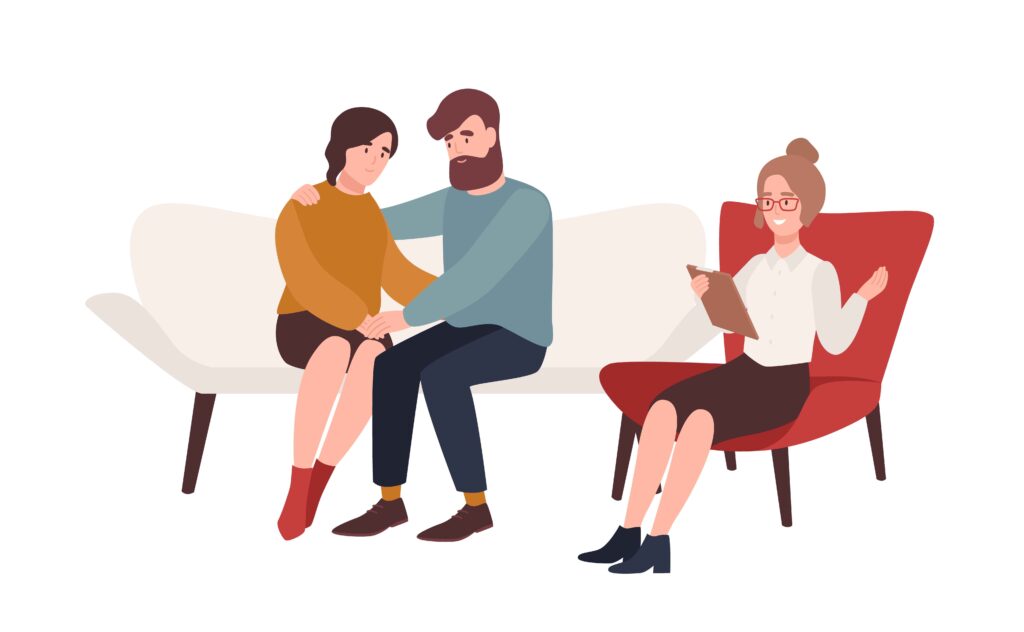
How Can Relationship Counseling Help
Understanding the Cycle: A Common Relationship Pattern
Many couples fall into a cycle of misunderstanding and emotional distance without realizing it.
One partner longs for closeness and wants to feel prioritized. When their need for connection isn’t met, they feel rejected. The other partner values independence and wants to feel accepted as they are. When faced with demands for more attention, they feel like they can never do enough.
One night, one partner asks the other to come to bed early for some quality time. The request is met with a polite decline—the other partner wants a little personal time after a long day. Feeling dismissed, the first partner sighs and turns away, saying, “Fine, whatever.”
Sensing disappointment, the second partner withdraws emotionally, feeling unfairly blamed. Instead of resolving the moment, they both pull away.
One just wants to feel important.
The other just wants to feel accepted.
But instead, both end up hurt, reinforcing a pattern where neither person’s needs feel fully understood. Without intervention, these small moments compound over time, creating what feels like a toxic relationship. But this cycle is fixable—and therapy helps couples recognize and break it.
What You’ll Learn in Couples Therapy
A well-trained relationship therapist will help you:
- Identify and understand your reactive cycle
- Learn healthier ways to communicate needs without triggering defensiveness
- Shift from conflict to connection by creating emotional safety
- Develop skills to repair after disagreements, so conflict no longer causes long-term damage
Research shows that even couples experiencing high levels of distress can benefit from therapy. The initial state of the relationship doesn’t determine success—what matters is the willingness to engage in the process and apply the right strategies for change..
When Therapy May NOT Work
While couples therapy can be transformative, it isn’t the answer for every situation. Therapy may not be effective if:
- One partner refuses to acknowledge issues – If one person denies problems exist, therapy won’t lead to change.
- Toxicity involves abuse – Couples counseling is NOT recommended in abusive relationships. If one partner is controlling, physically harmful, or coercive, individual support (not couples therapy) is the safest option.
- A partner is unwilling to change – If someone refuses to reflect on their role in the conflict, meaningful progress is unlikely.
- There’s a deep loss of respect – If contempt and resentment have overtaken the relationship, it may be too difficult to rebuild trust.
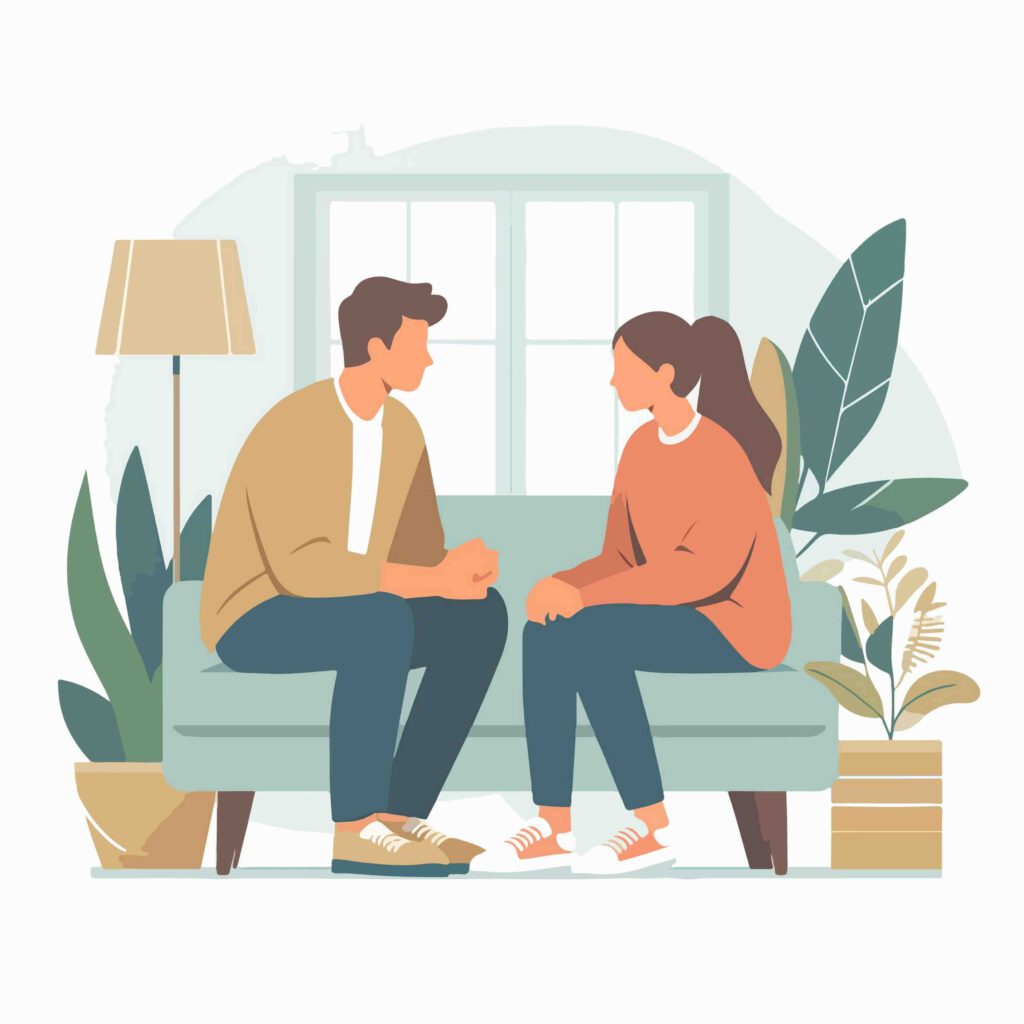
Can Therapy Help You Decide to Leave?
Sometimes, therapy isn’t about saving the relationship but understanding it well enough to make the right decision.
Emotionally Focused Therapy (EFT) doesn’t force couples to stay together—it helps partners explore what’s really happening in their relationship. Through therapy, some couples gain the clarity they need to walk away with confidence rather than remaining stuck in a cycle of uncertainty.
If you’re unsure whether to stay or leave, therapy can:
- Help you understand the root issues in your relationship
- Clarify whether the problems are fixable or fundamental
- Provide a safe space to process emotions and decision-making
Taking the Next Step
Toxic relationships don’t have to stay toxic. If you and your partner are willing to engage in real work, therapy can help rebuild trust, improve communication, and transform conflict into connection.
At ClearMinds Counseling, we specialize in helping couples navigate difficult relationships with understanding, compassion, and effective strategies. Whether you want to heal your relationship or gain clarity on your next steps, our experienced couple therapists are here to support you.
If you’re ready to explore therapy, reach out today — because you deserve a relationship that nurtures, not drains, your well-being.
5 Simple Mental Health Practices for Your Everyday Life: Nurturing Your Body & Mind
In today’s fast-paced world, it’s becoming increasingly evident that we need to place our mental health at the forefront
Ways to Reduce Anxiety in 2024
As we say farewell to 2022 and usher in the New Year, we look towards the future. With New Year’s resolutions on the docket, many of us are striving to achieve a calm life …
Navigating Compassion Fatigue in the Digital Age: A Call to Prioritize Mental Well-Being
Amid the constant stream of information and images that flood our screens, the toll on our mental well-being can be …
The Link Between Anxiety and Overeating
All of us have encountered moments of stress and unease throughout our lives. These feelings of anxiety not only bring…
10 Steps To Fix A Toxic Relationship
Every relationship has its fair share of ups and downs, but when toxicity creeps in, it can become a serious challenge. Toxic relationships can be emotionally draining and detrimental to our overall …
Exploring the Benefits of EMDR Therapy for Anxiety and Depression
Anxiety and depression are two of the most common mental health disorders worldwide, affecting millions of people every year. While traditional talk therapy and medication can be …
Health Effects of Untreated Depression
It’s very common to feel sadness at one point or another in our life. Depending on your specific circumstances, you may even feel …
Psychologists vs. Psychiatrists – What’s the Difference?
Clients shouldn’t have to jump through hoops to understand who the perfect candidate is for treating their emotional and/or behavioral struggles. Yet, understanding the type of provider you should see during …
Gentle Parenting: What is it and How to Try it Yourself
When it comes to raising children, no one has all the answers. Every parent and child have unique challenges and needs. Navigating these individual circumstances along with ever-changing environments, such as school …
How to Improve Your Relationship with Your Children – A Psychologist’s Guide
The modern family’s lifestyle leaves us shuffling from school to sports practice, family events, visiting friends, and everything in between. As society evolves to become more on-the-go and technologically advanced, w…

